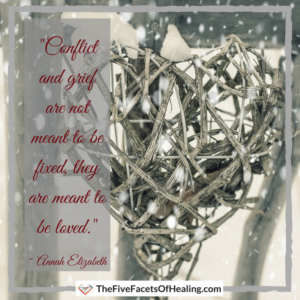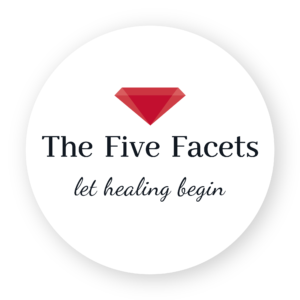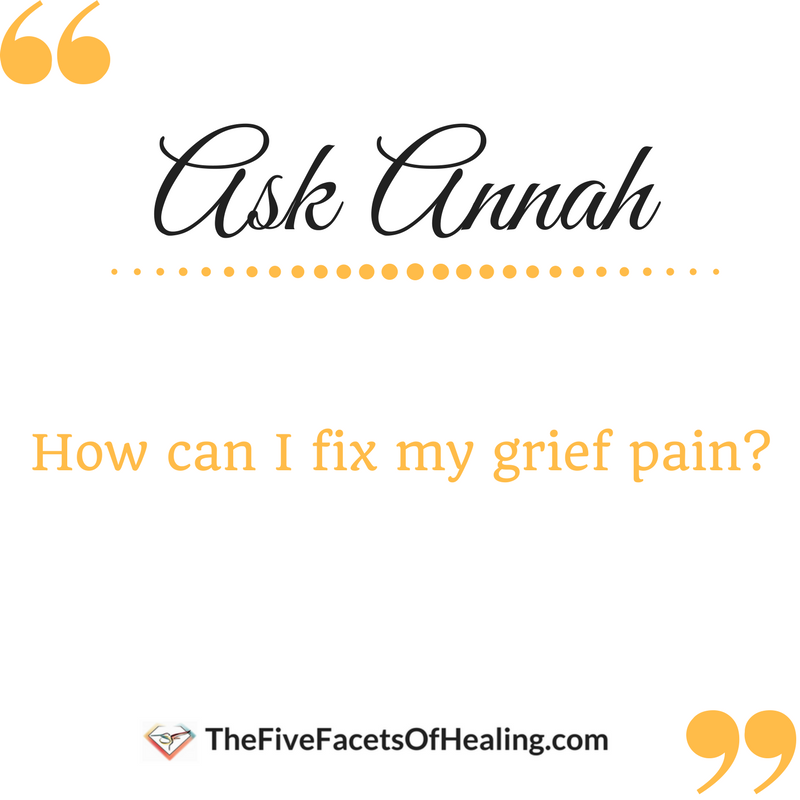Dearest Neighbor,
I feel your pain and I am so very sorry for your losses.
“How can I fix my grief pain,” you ask?
I wish there was one simple answer I could give you, some magic wand I can wave to make the hurt all go away, but since I wasn’t born with those gifts, I’ll be happy to share some of what I learned along my own journeys through loss, grief, and healing.
I remember sitting in Counselor Hank’s office and begging of him a similar plea, “Please just tell me what I need to do so I can fix it,” It being a pain that raged through me in ways that no words could explain.
“I can’t tell you what to do or what you need because it must come from within you, Annah,” he replied.
I recall being angry with him in that moment, this beloved therapist who taught me so much about conflict resolution and helped me unravel a long and un-diagnosed depression.
In the previous five years my firstborn had died following unexpected delivery complications, I’d had two miscarriages, was ensconced in marital troubles, and had somehow managed to make it through two more complicated but successful pregnancies.
Here’s how all of that culminated: I spent the six weeks surrounding my thirty-first birthday in a psychiatric ward for severe depression. All I wanted from anyone there was to regularly open the smoker’s room so I could feed my nicotine addiction and to tell me how to fix the broken me.
My requests for keys to the lounge weren’t a problem, but no one would fix me or tell me how to fix myself. I felt like a failure beyond measure.
 Conflict and grief are not meant to be fixed, they are meant to be loved.
Conflict and grief are not meant to be fixed, they are meant to be loved.
Today I understand what my therapist meant. He could have made suggestions about things I could do, and he did. But there was no “fixing” anything, because I wasn’t broken, I only felt as if my entire being–my academic, emotional, physical, social, and spiritual sides of myself had been fractured beyond repair.
One of the many truths that is validated again and again through my work is that our conflict and grief are opportunities for personal and soul growth.
How does anything grow, Neighbor? Your plants? Your children? Your pets? Your wallet? Your dreams?
You nurture them. You feed them with your time, attention, and energy. You love them by investing in them.
The same holds true for your conflict and grief. When you love it, when you ask questions about what certain aspects of your pain represent to you, when you sit with your grief and give it tender loving care, you are healing yourself by understanding your grief pain.
It’s okay that you’re not okay.
One of the fundamental principles in The Five Facets Philosophy on Healing is to understand the autonomy between loss, grief, and healing.
Loss represents an event where something goes missing from your life. This loss could be a tangible or an abstract loss.
Grief is your individual response to your loss event.
Healing is your resolution of the conflicts that comprised your grief.
I will always remember one of the greatest gifts I received shortly after Gavin Michael died. A customer I’d been working with prior to my delivery came in after my return to work and, unaware about my son’s death, asked how the baby was. I gave her the same response I gave everyone, the only one I could think of: “I’m sorry, he didn’t make it.”
As a wave of terror and shock raced across her face, I did what I had been doing for all of the others who had just heard testimony to the unimaginable: I reached out to pat her twitching hands and regurgitated what my doctor and so many others had told me, “It’s okay; I’m young and healthy; I can have other children.”
Her response, however, was different from all the rest. “No, it’s not okay,” she said. Though it would be years before I fully understood the wisdom in that woman’s words, their value is immeasurable.
“Healing doesn’t mean that what happened to you is okay, rather it means that you can be okay in the face of your adversity.”
Likewise, it is definitely okay to not feel okay while you are grieving.
Grief is the first of The 5 Steps of Healing, for without grief, there would be no need for healing.
Grief and healing are indicative of change.
Grief is not about what you’ve lost, Neighbor, rather it is about your attachment to what has gone missing from your life.
How you identify with someone or something plays a part in how complex your conflict and grief pain will be.
The reason you suffer so is because grief is a symptom of a change that you were not expecting or may believe you aren’t ready for.
Maybe you can’t imagine your life without the person or pet who died. Maybe you were a caretaker and wonder what you are going to do now that you no longer have those daily duties and rituals to fill your days and nights.
Your loss can impact one or all of your five facets, demanding new ways of breathing, thinking, connecting, feeling, and being.
Your healing will ultimately bring a new balance to your life, a different way of existing.
Healing cannot replace or fix what you have lost, rather it will help you live a life where grief and growth coincide in different, yet equally beautiful ways.
Re-framing your question from “How can I fix my grief pain” to “How can I find resolution in my grief conflict” will help you find a peace in your situations that will allow you to move forward in living your best life–the life you deserve.

I am not only honored to receive your queries, I LOVE answering them! As the saying goes, The only stupid question is the one not asked. Let us know your burning, nagging or curious thoughts! You can leave your question in the comments or email it to us. All questions are considered anonymous.
Until next time, yours in hope, healing, and happiness,



2 Comments on “Ask Annah: How Can I Fix My Grief Pain?”
It is approaching 3 years since my twin sister died, and 30 months for my husband. I am unable to contemplate “healing” as applied to my grief. All I can imagine is maybe developing flaming-red searing-hot scar tissue over third-degree burns. Some day. A long time from now. I will always be scarred. Heal? How is this possible?
Dearest Neighbor Mags…
I am sorry to read about the deaths of two of your loved ones. To experience one such loss in a three year period can be devastating, but to experience two in that time frame can feel…well…like what I imagine those third-degree burns over your entire body might feel like.
Will you always be scarred? What I can tell you is that where there is a major loss, there is often a scar that remains, but eventually that scar can fade to near invisible. Is it possible to heal from such losses? Yes. I know this is hard for you to believe right now because your losses are so fresh, but I hope you can find some way to trust me when I tell you that you can do this. You can find resolution in these conflicts.
THE FIRST STEP FOR YOU, HOWEVER, IS TO CHOOSE GRIEF. Honor your grief, for without grief there would be no need for healing. Know that it is okay to not be okay. Know that, though your loss events will never be okay, you can find a way to be okay in the face of your adversities.
Please know that it is not uncommon for the third year following a significant loss to be one of the hardest and most painful. This article might be of some benefit to you: https://www.annahelizabeth.com/2017/09/ask-annah-why-do-i-feel-worse-2-3-years-after-my-significant-life-loss-event/
Lastly, please know that, though you may feel alone, you are not alone. We may not be able to identify with exactly how you feel in your heart and in your head, but you have millions of neighbors who can relate. I am here if you need me, Neighbor. Sending virtual hugs, light, and love.